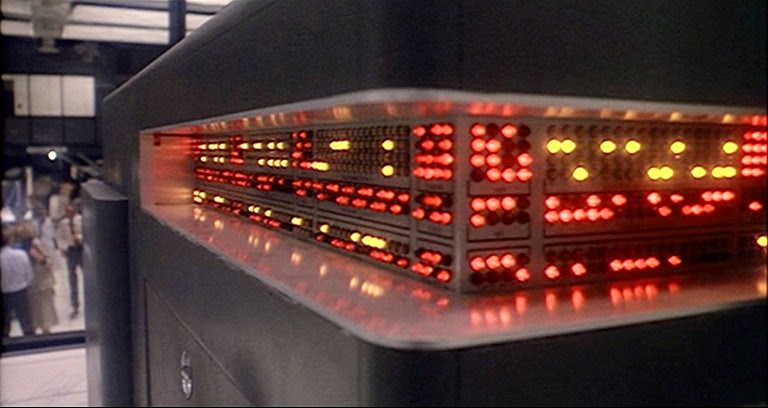Many thanks to all of you who tossed some new topic ideas at me (here and on Twitter).
I think this might fill up all the slots I had for the rest of the year.
I may even take some time to rethink my upcoming plans.
Anyway, for now, the potential Sherlock Holmes idea stuck in my head, so let me babble about that for a minute or three.
There’s a pair of terms that have been floating around for a bit now—Watsonian and Doylist. On the off chance you don’t get the reference, the terms come from Dr. John (or Joan) Watson, constant companion to Sherlock Holmes, and also to their creator, Sir Arthur Conan Doyle. When we use these terms, we’re saying there’s two ways to look at any story element. The in-story reason for this happening, and the author’s reason for this happening. They’re often very different, but they’re both very important.
For example…
Why did Sherlock Holmes die in “
The Final Problem,” plunging to his death at
Reichenbach Falls?
Well, from Watson’s point of view, Holmes sacrificed himself because it was the only way to stop Moriarty.
The two evenly-matched men fight, and while Holmes dies, Moriarty’s now-leaderless criminal empire will crumble.
A net win for society.
From Doyle’s point of view, though, he was just sick of writing Sherlock Holmes stories. He was making money off them, yeah, but he wanted to move on and start writing more serious, important stuff about, well… ghosts and fairies. No, seriously. So he killed Holmes off and tried (unsuccessfully) to move on.
Yeah, don’t be the person pointing out Doyle later retconned the death.
When he wrote this story,
Holmes was dead.
Toast.
Joined the choir invisible.
Of course, this principal doesn’t just apply to Sherlock Holmes stories. If you look at most stories, the elements break down into these two categories.
–Whydid
Han Solo get frozen in carbonite?
The Watsonian reason is that Vader wanted to test the carbon-freezing process and Boba Fett wanted to collect on Solo’s sizeable bounty.
The Doylist reason is that Harrison Ford wasn’t sure he wanted to come back to play Solo again, so George Lucas needed an ending that could explain Solo’s potential absence but also contain the possibility of bringing him back.
 –Why
–Whydid
the Twelfth Doctor regenerate?
Watsonian reason—he was shot by the Cybermen and managed to hold off his regeneration briefly before transforming into the Thirteenth Doctor.
Doylist—Peter Capaldi was leaving the series, as was showrunner Stephen Moffat, and the new team decided to cast Jodie Whittaker.
Here’s one of my own—
Whydoes
Ex-Patriots begin with a Fourth of July fireworks show?
Well, from a Watsonian point of view, the citizens of the Mount are celebrating.
It’s the Fourth, but it’s also one of their first major holidays since things have (for them) kinda stabilized after the zombocalypse.
So they’re partying hard.
From a Doylist point of view, though… this opening lets me
start with action.
There’s a lot going on.
It gives me a chance to re-introduce our four main heroes. It also lets be immediately bring up the idea of nations and patriotism, which are key themes in the book.
Heck, because this was one of those very rare times where I
knewthere’d be another book in the series, this was also a setup for a plot thread in
Ex-Communication. This all makes sense, yes?
Why are we talking about it?
I think it’s really important to remember these distinctions when we’re talking about writing. To be more specific, when we’re talking about aspects of writing. If we’re discussing dialogue or characters or settings, we should be clear if this is an in-world discussion or an authorial discussion. Are we talking about things as they relate to the characters, or as they relate to the author (and the audience)?
“Authorial”? Ooooh, don’t I sound all clever…
For example, once or thrice I’ve mentioned my belief that
all good, successful characters have three common traits—they’re believable, they’re relatable, and they’re likable.
But I’ve seen some pushback on this.
I’ve had people online and in person argue that characters don’t need to be likable.
Characters just need to be fascinating or compelling or… well, look.
They don’t need to be likable.

Here’s the thing.
In a Watsonian sense—I agree with this.
I mean, I’ve said this myself lots of times (pretty much every time I talk about these traits).
Likable doesn’t mean we want a character
to marry into our family and they always have a kind word to say.
Within the story, there are tons of popular protagonists who aren’t remotely likable.
Who are kind of awful, really.
There’s not a version of Hannibal Lecter—books, movies, or television—that most of us would want to have a private dinner with.
We probably couldn’t count the number of books and movies that have hit men or assassins as their main characters.
And to bring us back around, most modern interpretations of Sherlock Holmes rightly point out that the guy’s an abrasive, condescending ass.
(…and that’s with the people he likes.)
But in a Doylist sense, viewed from outside… we kinda like these people.
We admire Lecter’s
twisted ethics.
We envy the ultra-competent man or woman of action.
And it’s kind of pleasant to watch Holmes point out what’s sitting right in front of everyone’s face.
That separation of fiction, the thin sheath that keeps us from absolutely immersing into the story, lets us enjoy these characters in ways we couldn’t in real life.
I mean if we didn’t like them as readers,
why would we keep reading about them?
Who’d torture themselves like that.
Hell, why would we keep
writingabout them if we didn’t like them?
I can’t imagine sitting down and working for months on a story about a character I didn’t enjoy on some level.
Y’see, Timmy, when I’m taking in advice I need to be clear if we’re talking about things in a Watsonian or Doylist sense. And when I see advice from other writers, I should stop and think about how they mean it. Are they talking about the actual pace of events in the timeline of the story, or the pacing in the narrative? Are they talking about the motives of the characters or the writer?
In the future, I’m going to try to be better about this, too.
Next time…
Well, thanks to some of you, I’ve got next time all planed out in advance.
Until then… go write.
 –Whydid the Twelfth Doctor regenerate? Watsonian reason—he was shot by the Cybermen and managed to hold off his regeneration briefly before transforming into the Thirteenth Doctor. Doylist—Peter Capaldi was leaving the series, as was showrunner Stephen Moffat, and the new team decided to cast Jodie Whittaker.
–Whydid the Twelfth Doctor regenerate? Watsonian reason—he was shot by the Cybermen and managed to hold off his regeneration briefly before transforming into the Thirteenth Doctor. Doylist—Peter Capaldi was leaving the series, as was showrunner Stephen Moffat, and the new team decided to cast Jodie Whittaker. Here’s the thing. In a Watsonian sense—I agree with this. I mean, I’ve said this myself lots of times (pretty much every time I talk about these traits). Likable doesn’t mean we want a character to marry into our family and they always have a kind word to say. Within the story, there are tons of popular protagonists who aren’t remotely likable. Who are kind of awful, really. There’s not a version of Hannibal Lecter—books, movies, or television—that most of us would want to have a private dinner with. We probably couldn’t count the number of books and movies that have hit men or assassins as their main characters. And to bring us back around, most modern interpretations of Sherlock Holmes rightly point out that the guy’s an abrasive, condescending ass.
Here’s the thing. In a Watsonian sense—I agree with this. I mean, I’ve said this myself lots of times (pretty much every time I talk about these traits). Likable doesn’t mean we want a character to marry into our family and they always have a kind word to say. Within the story, there are tons of popular protagonists who aren’t remotely likable. Who are kind of awful, really. There’s not a version of Hannibal Lecter—books, movies, or television—that most of us would want to have a private dinner with. We probably couldn’t count the number of books and movies that have hit men or assassins as their main characters. And to bring us back around, most modern interpretations of Sherlock Holmes rightly point out that the guy’s an abrasive, condescending ass. 









